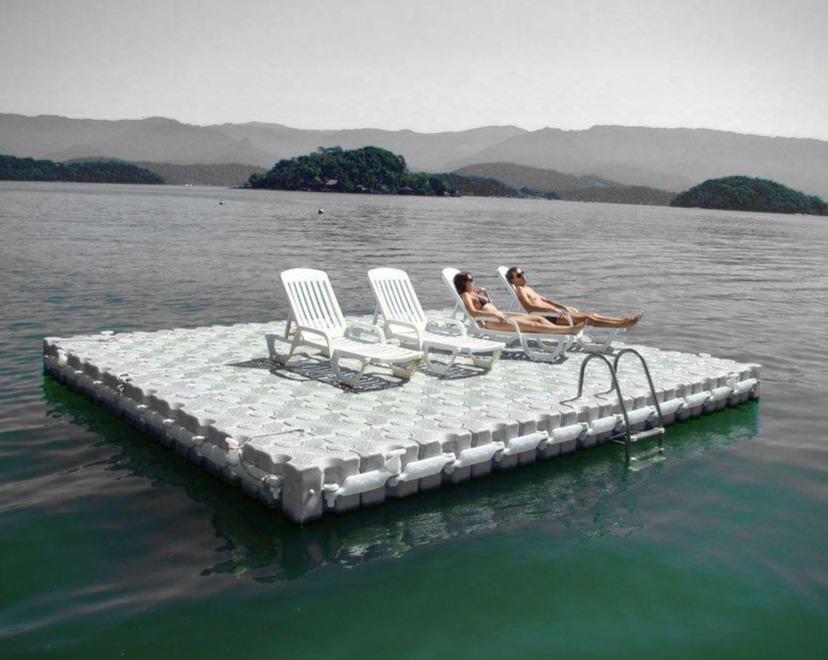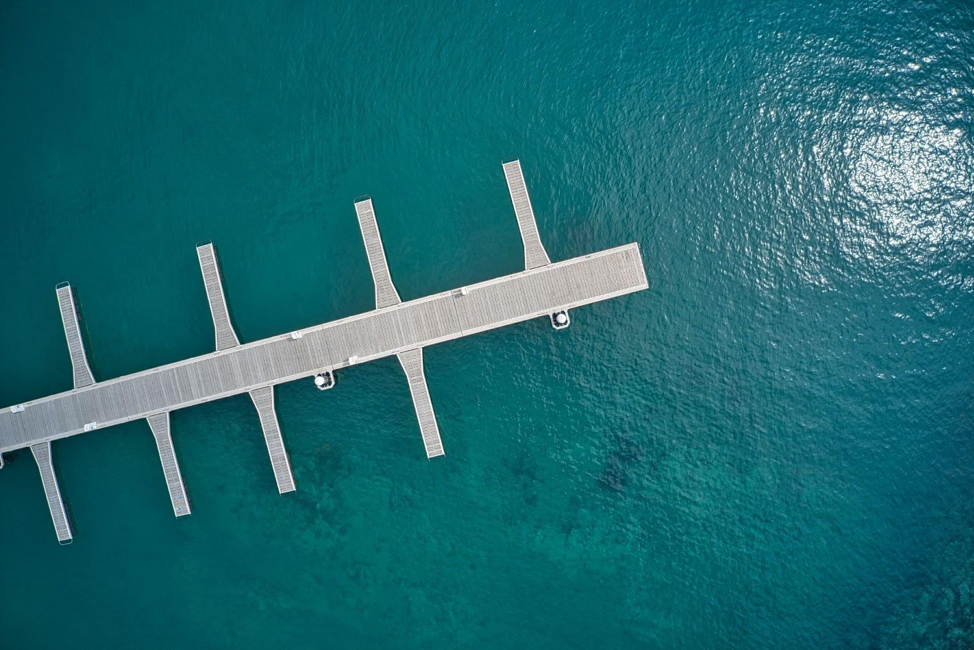What to Expect from a Trustworthy Floating Dock Company: Services and Support
What to Expect from a Trustworthy Floating Dock Company: Services and Support
Blog Article
The Ultimate Overview to Choosing the most effective Floating Docks
Picking the optimal floating dock calls for a comprehensive understanding of different components that affect both performance and durability. Aspects such as dock types, materials, and important attributes dramatically impact your decision-making procedure.
Comprehending Floating Dock Types
When choosing a drifting dock, it is important to comprehend the numerous types available, as each offers distinctive objectives and applications. Floating docks primarily fall under three categories: modular, stationary, and pontoon docks.
Modular docks are composed of individual sections that can be easily put together or reconfigured, making them suitable for changing water levels and diverse uses, such as business operations or entertainment activities. Their flexibility enables customization based on specific needs.

Pontoon docks are characterized by their resilient structure, often composed of numerous pontoons that offer security and support. They are specifically appropriate for bigger vessels and are typically made use of in marinas or for waterside properties. Understanding these kinds aids in choosing one of the most appropriate floating dock to fulfill particular demands, guaranteeing optimum functionality and security.
Trick Materials for Toughness
Picking the right materials for floating docks dramatically impacts their toughness and long life. The most usual materials include timber, plastic, steel, and composite materials, each offering distinctive advantages and constraints.
Wood, usually preferred for its visual allure, needs routine upkeep to withstand wetness and degeneration. Pressure-treated lumber can boost resistance to rot, however it may still be prone to parasites and weathering.

Plastic docks, constructed from high-density polyethylene (HDPE), are immune to deterioration, UV radiation, and effect, making them a preferred option for coastal atmospheres. Their lightweight nature additionally promotes easy setup and moving.
Steel docks, typically built from aluminum or galvanized steel, offer outstanding toughness and toughness. They are immune to corrosion, particularly when treated, but might need extra insulation to stop heat build-up in warm environments.
Composite products, combining timber fibers and plastics, deliver the benefits of both timber and plastic, resisting dampness and fading while requiring marginal maintenance. - floating docks
Eventually, the choice of materials ought to line up with ecological conditions, meant use, and upkeep preferences to ensure the floating dock remains practical and visually pleasing gradually.
Essential Features to Consider
While the choice of materials is essential, taking into consideration necessary attributes for floating docks is equally crucial to make certain optimal performance and individual satisfaction. One key feature to evaluate is the dock's buoyancy ability, which determines just how much weight it can support without immersing. dock company. This is vital for fitting watercrafts, individual boat, and even recreational activities
Furthermore, mobility is a substantial factor to consider. Relying on your needs, you may want a dock that is easy to take apart and carry, specifically if you intend to move it seasonally. Stability is an additional crucial feature; a well-designed floating dock needs to minimize activity caused by wind and water currents, providing a secure system for customers.
Safety and security attributes, such as non-slip surface areas and rounded edges, are also vital to stop mishaps, particularly in damp problems. Moreover, think about the availability of devices, such as cleats, bumpers, and ladders, which can enhance the functionality of your dock.
Setup and Maintenance Tips
Establishing up and preserving a floating dock calls for careful preparation and interest to information to look these up guarantee its long life and optimum efficiency. Begin by picking a suitable area that minimizes direct exposure to strong currents and waves, which can trigger wear and tear. Ensure that the water depth suffices for the dock's elevation and that it is secured firmly to protect against activity.
Throughout installation, comply with the manufacturer's standards carefully, as inappropriate setting up can jeopardize security. Usage premium products resistant to corrosion, such as aluminum or treated timber, to enhance durability. Routinely evaluate all parts, consisting of drifts, adapters, and securing systems, for signs of damage or wear.
Maintenance is important for expanding the life of your dock. Clean the surfaces periodically to avoid algae accumulation and look for any kind of loosened fittings that might call for tightening up. Ensure they continue to be complimentary and intact from leaks if your dock utilizes flotation protection devices. In addition, think about applying protective finishes to wood elements to lower weathering effects. By adhering to these setup and maintenance suggestions, you can take pleasure in a useful and dependable floating dock for several years ahead.
Budgeting for Your Dock
Budgeting for your dock is an essential action that can dramatically influence your total contentment and financial investment in a waterside property. Developing a clear budget plan aids you navigate the various choices available and guarantees you make notified choices that straighten with your economic capacities.
Begin by figuring out the size and layout of the dock you need, as these elements will greatly affect the cost. Floating docks can differ substantially in price, relying on materials, buoyancy, and features like accessories and ramps. Research various producers and suppliers to contrast prices and recognize the market worth.
In addition to first expenses, think about recurring costs such as upkeep, insurance coverage, and potential repair services. Assign funds for these reoccuring expenses to avoid shocks down the line. It's also sensible to allocate any type of essential permits or examinations, which may be needed by local guidelines.
Last but not least, remember the prospective return on financial investment. A well-planned dock can improve your residential property's value and charm, giving a positive monetary influence in the long-term. By budgeting efficiently, you can make sure that your dock fulfills your needs without jeopardizing your economic stability.
Conclusion
In final thought, choosing the suitable floating dock requires a thorough assessment of visit site different elements, including dock types, materials, important features, and installation processes. Prioritizing longevity and conformity with regional guidelines eventually improves functionality and residential or commercial property value. Careful factor to consider of financial restraints will certainly look at here additionally make sure a sound investment. By sticking to these standards, individuals can make informed choices that advertise long-lasting complete satisfaction and usability in marine atmospheres.

While the choice of materials is vital, considering vital attributes for floating docks is equally crucial to ensure ideal efficiency and customer satisfaction.Setting up and preserving a floating dock requires careful planning and interest to information to guarantee its longevity and ideal performance. Floating docks can vary substantially in rate, depending on products, buoyancy, and attributes like accessories and ramps.In final thought, picking the optimal floating dock necessitates a thorough assessment of different variables, consisting of dock types, materials, vital attributes, and setup processes.
Report this page